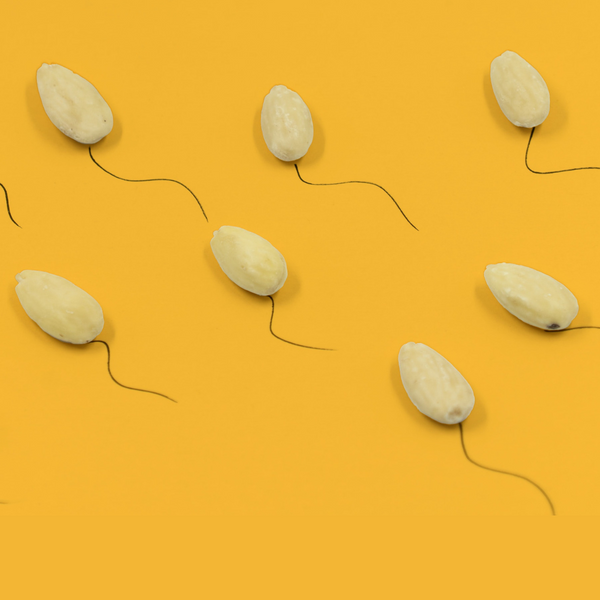
Article
Article
Posted on
Male infertility is an issue that affects approximately 1 in 7 couples in the UK, with about 40-50% of these cases attributed to male factors, including low sperm count or poor sperm quality.
Nutrition plays a crucial role in supporting sperm health, and specific nutrient-rich foods can significantly improve fertility outcomes.
Incorporating these seven best foods for male fertility into your diet can support sperm count, motility, and overall reproductive health.
Let's dive into the details of how these foods can help boost male fertility.

Oysters are well-known for being a rich source of zinc, which is essential for testosterone production and sperm motility.
Men who consume enough zinc have a better chance of maintaining optimal sperm count and quality. In fact, a study found that zinc deficiency in men can lead to a reduction in sperm quality and testosterone levels.

Walnuts are an excellent source of omega-3 fatty acids. Research published in the journal The Journal of Nutrition suggests that consuming 75 grams of walnuts daily improved sperm vitality, motility, and morphology in men.
The high antioxidant content in walnuts also helps protect sperm from oxidative damage.

Dark, leafy greens such as spinach, kale, and broccoli are packed with folate (vitamin B9), which is crucial for DNA synthesis and healthy sperm production.
According to a study published by the University of California, Berkeley, men with low folate intake had a 20% higher incidence of sperm abnormalities compared to men with adequate folate levels.

Salmon is high in omega-3 fatty acids and vitamin D, both of which support sperm motility and testosterone production. Research has shown that men with higher vitamin D levels tend to have higher sperm counts and improved sperm motility. Including salmon in your diet can help you meet your daily omega-3 and vitamin D needs.

Eggs provide high-quality protein and are rich in essential nutrients such as vitamin E and B vitamins, both of which are important for healthy sperm production. Vitamin E is particularly beneficial, as it helps protect sperm cells from oxidative stress. According to the National Institutes of Health, vitamin E can improve sperm function in men experiencing infertility.

Dark chocolate contains L-arginine, an amino acid that can improve sperm count and semen volume. A study published in the Journal of Human Reproductive Sciences found that antioxidants in dark chocolate help reduce oxidative stress and protect sperm DNA from damage, enhancing overall fertility potential.

Pomegranates are rich in antioxidants, which help protect sperm from oxidative damage. A recent study found that men who consumed pomegranate juice daily for three months experienced a significant increase in sperm quality and testosterone levels.
While diet is key, supplements can also support male fertility. Consider the following:
Beyond a balanced diet, there are several lifestyle changes that can support male fertility:
By incorporating these best foods for male fertility into your diet, along with healthy lifestyle habits and supplements, you can improve your chances of conception and enhance overall reproductive health.

Article

Article

Article